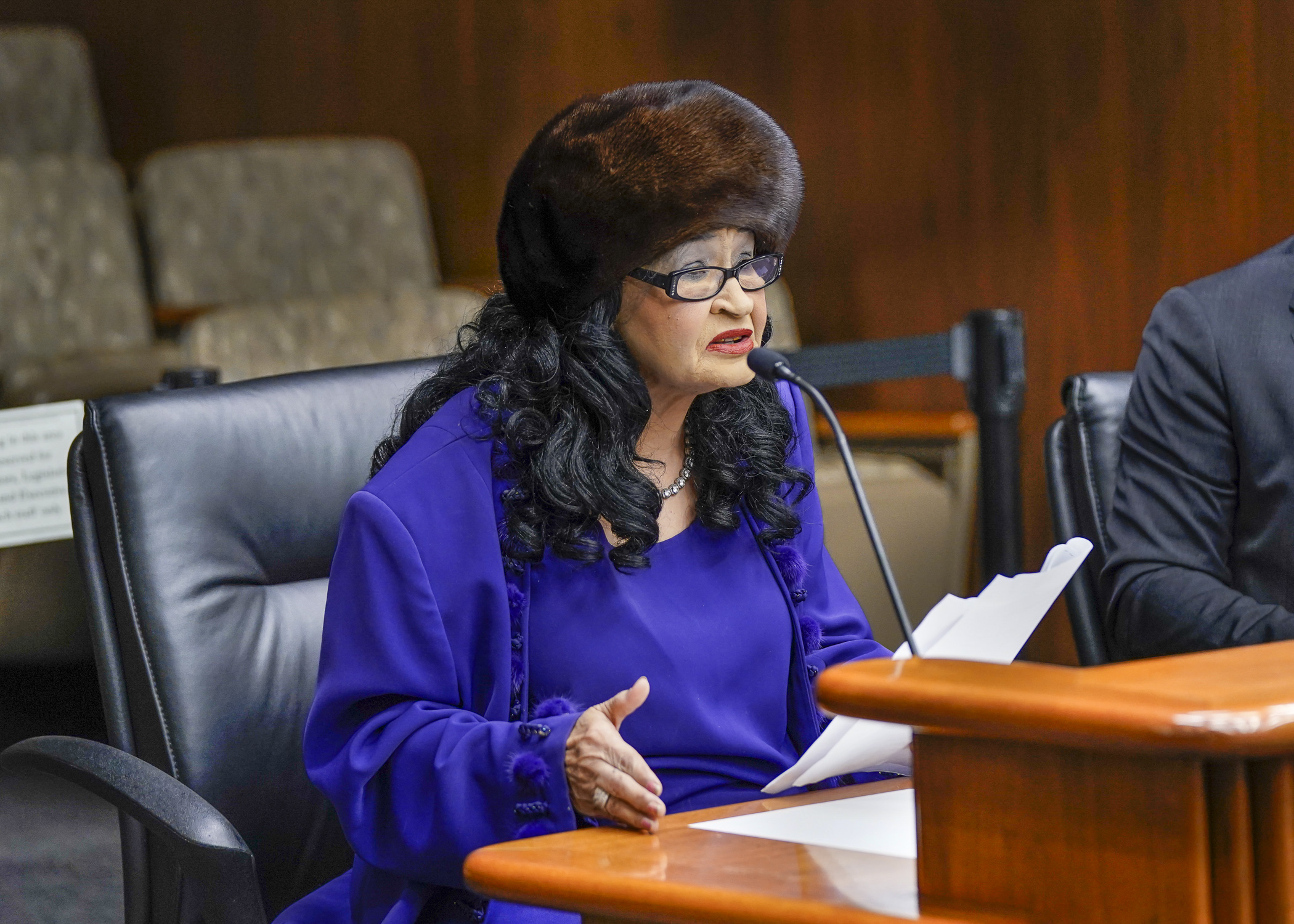$4 billion could go to cost-burdened households in new rental assistance program
Half of the House DFL caucus has signed on to HF11.
But only one in four Minnesotans who are eligible for housing vouchers receive one.
Rep. Michael Howard (DFL-Richfield) said the so-called “Bring It Home” bill he sponsors would create a state-based rental assistance program to fill this gap so that everyone who qualifies for a federal housing voucher would receive one.
No appropriation is currently included in the bill, but a fiscal note outlines the cost that is estimated at $4 billion over the course of the next biennium.
“For $2 billion [per year] we could functionally end homelessness in Minnesota,” Howard said. “That’s a policy choice.”
On Tuesday, the House Housing Finance and Policy Committee laid the bill over, as amended, for possible omnibus bill inclusion.
Even those who now obtain a coveted housing voucher face challenges.
“From the time I put my name on the list to the time I got the voucher, it was a little bit over five years,” said 75-year-old Jurline Bryant, who moved multiple times because new landlords bought the property and did not accept the Section 8 housing voucher.
 Jurline Bryant, a resident at Aeon Housing Partnership, testifies before the House Housing Finance and Policy Committee Feb. 7 in support of HF11, which would establish a rent assistance program for low-income households. (Photo by Catherine Davis)
Jurline Bryant, a resident at Aeon Housing Partnership, testifies before the House Housing Finance and Policy Committee Feb. 7 in support of HF11, which would establish a rent assistance program for low-income households. (Photo by Catherine Davis)“You need to know that just because you are poor, you still matter,” she said.
The Minnesota Housing Finance Agency would issue the grants to local housing authorities who would, in turn, give assistance to these low-income eligible applicants.
The bill guarantees no specific amount per person and, instead, would offer the difference between the rent charged and 30% of household income, plus a utilities allowance if not in the lease. Assistance could not exceed 110% of fair market value for the location and family size.
Defending the bill’s high cost, Beacon Interfaith Housing Collaborative CEO Lee Blons said over 200,000 households live with housing insecurity every month and over a third of renters in almost every county cannot afford their rent.
“We need to create a solution as big as the problem,” she said.
Rep. Jim Nash (R-Waconia) was among Republicans worried about the large sticker price and potential minimum return.
“This does nothing to take away our inventory issues,” he said.
Since it is not one-time funding, Nash doesn’t see how the state can afford the full request after spending the projected budget surplus. Particularly in the event of an economic downturn, he believes the only viable mechanism at that point may be raising taxes.
Howard agrees that Minnesota needs to produce more units of affordable housing, and said other bills address this issue.
Related Articles
Search Session Daily
Advanced Search OptionsPriority Dailies
Ways and Means Committee OKs House budget resolution
By Mike Cook Total net General Fund expenditures in the 2026-27 biennium will not exceed a hair less than $66.62 billion.
That is the budget resolution approved Tuesday by the House Ways...
Total net General Fund expenditures in the 2026-27 biennium will not exceed a hair less than $66.62 billion.
That is the budget resolution approved Tuesday by the House Ways...
Minnesota's budget outlook worsens in both near, long term
By Rob Hubbard It looks as if those calling for less state spending could get their wish, judging from Thursday’s release of the February 2025 Budget and Economic Forecast.
A state su...
It looks as if those calling for less state spending could get their wish, judging from Thursday’s release of the February 2025 Budget and Economic Forecast.
A state su...